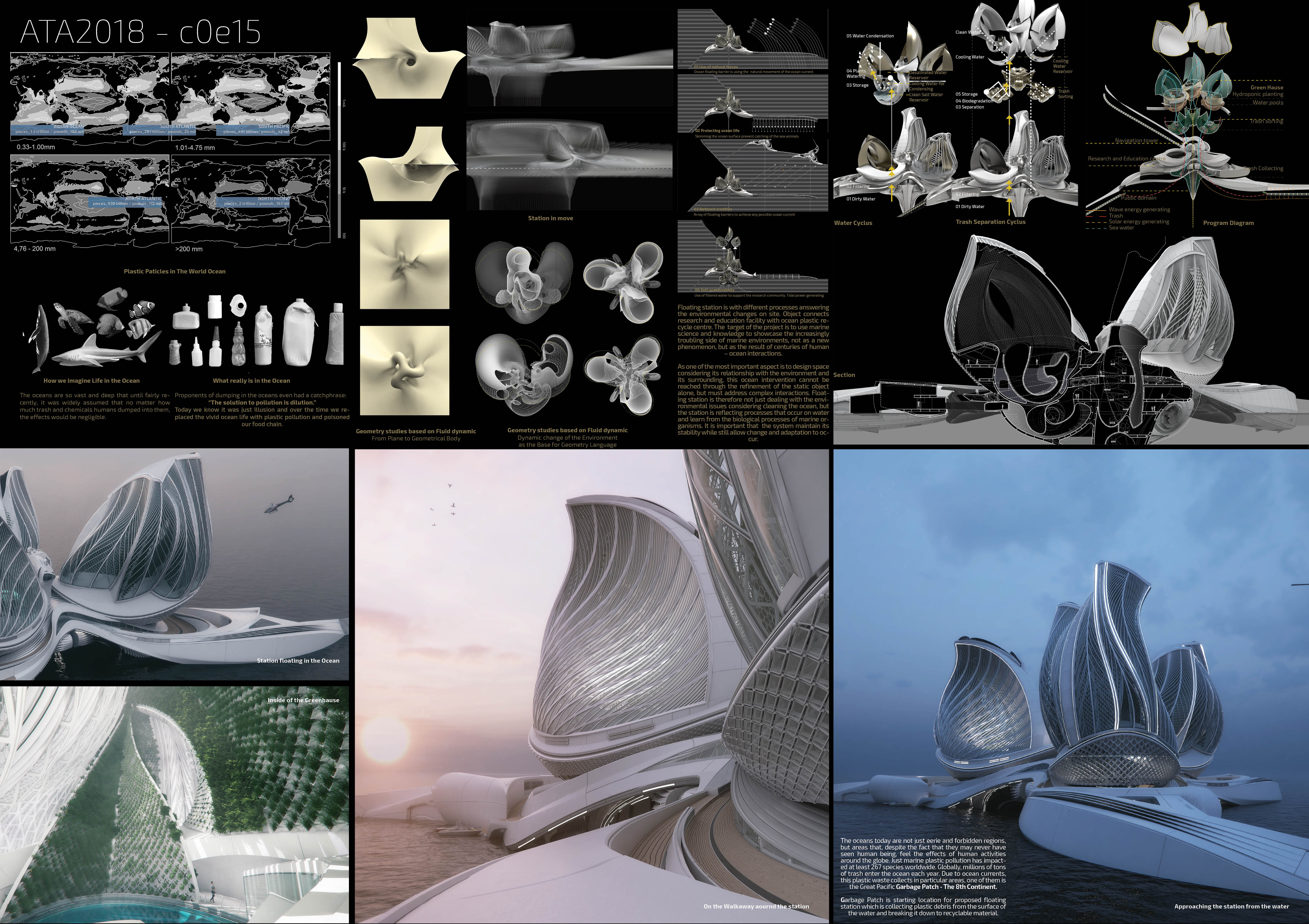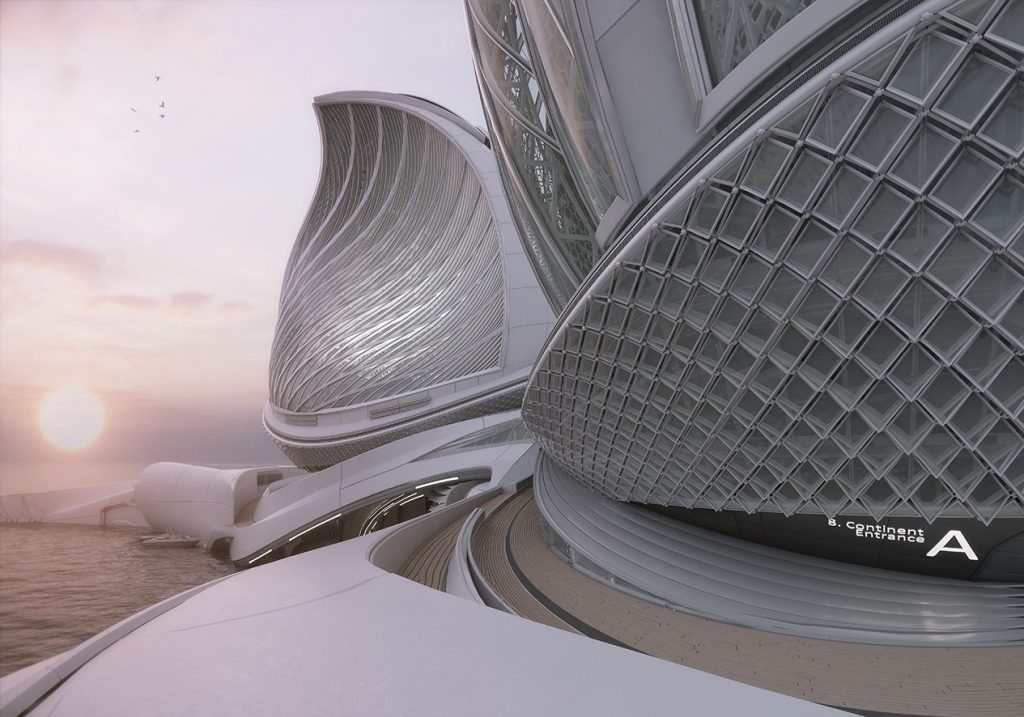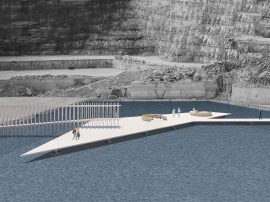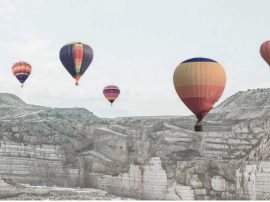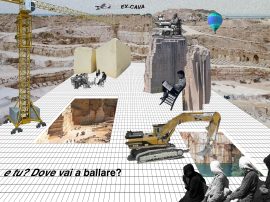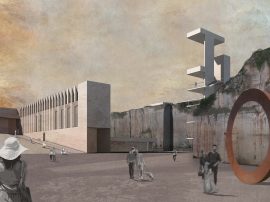The 8th Continent Station is with different processes answering the environmental changes on site. Object connects research and education facility with an ocean plastic recycling center. Considering this target of the project is to use marine science and knowledge to showcase the increasingly troubling side of marine environments, not as a new phenomenon, but as the result of centuries of human – ocean interactions. This new meeting platform should bring people to this distant environment and fight against the dilution that we cannot hurt ocean by our action on shore.
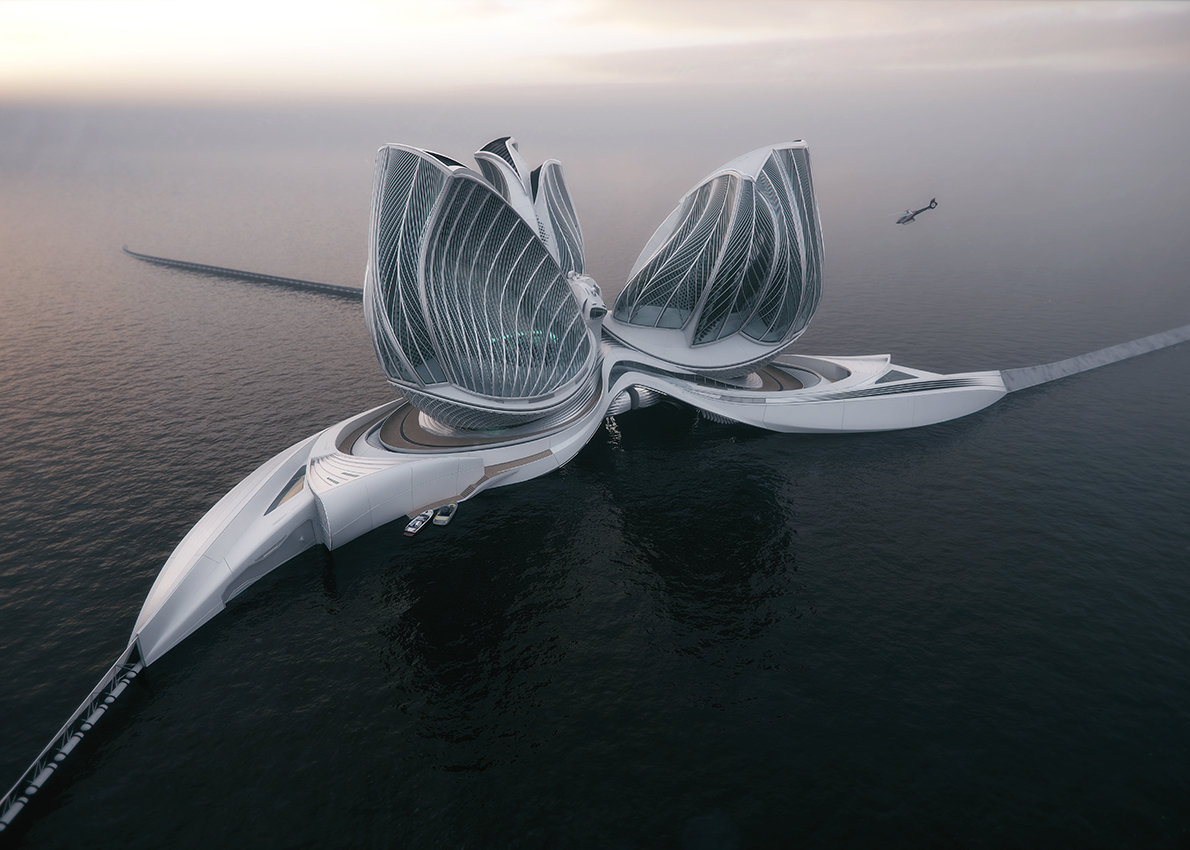
The sea is everything. ” ― Jules Verne, Twenty Thousand Leagues Under the Sea Today is time to value the immersive power of Oceans. They create life on Earth and shape our Atmosphere. Today is the time to take and action and fight for the environment. The oceans today are not just eerie and forbidden regions, but areas that, despite the fact that they may never have seen a human being, feel the effects of human activities. Marine plastic pollution has impacted at least 267 species. Globally, millions of tons of trash enter the ocean each year. Due to ocean currents, this plastic waste collects in particular areas, one of them is the Great Pacific Garbage Patch (The 8th Continent). Garbage Patch is the location for the proposed floating station which is collecting plastic debris from the surface of the water. The 8th Continent Station is not just dealing with the environmental issues considering cleaning the ocean, but the station is reflecting processes that occur on water and learn from the biological processes of marine organisms. It is important that the system can maintain its stability while still allow change and adaptation to occur. This dynamic architecture is first influenced, transformed and organized by ecology systems which consequently will allow the architecture to recreate ecology reciprocally.
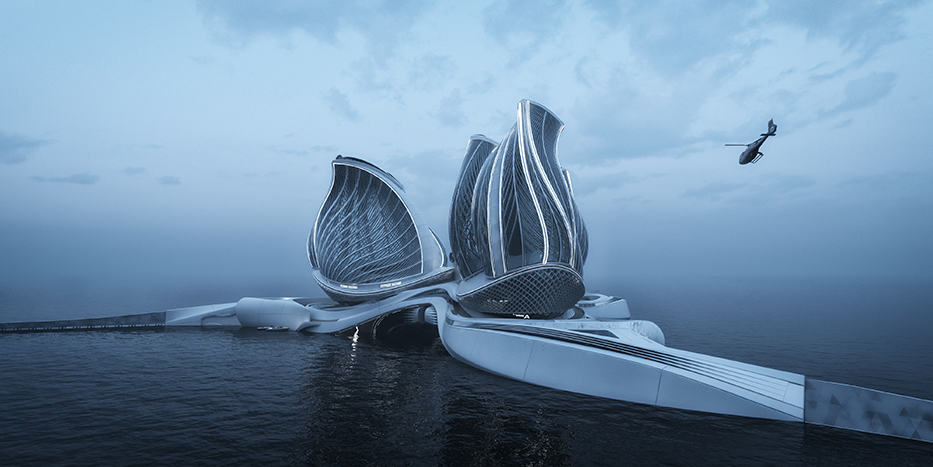
This dynamic architecture is first influenced, transformed and organized by ecology systems which consequently will allow the architecture to recreate ecology reciprocally. The 8th Continent Station is following three main ecological principles. The principles of fluctuations - the building is designed and perceived as the place where different cultural and natural processes interact. Firstly, it is a destination for Human – Ocean interaction, secondly, its form and function are created based on the natural processes which the station is engaging – navigation with the wind force, tidal power generating, water desalination through condensation. The principle of stratification - building´s organization emerges out of the interactions between its different properties and levels. This kind of organization allows complexity to be managed in a coherent manner. The principle of interdependence - relations between buildings properties and environment are reciprocal. The Floating Station is responding to the external stimuli and developing based on them. The Floating station is cleaning the ocean and restoring the balance in the marine environment. At the same time the natural forces are affecting the movement and positioning of the stations as well as the inside environment.
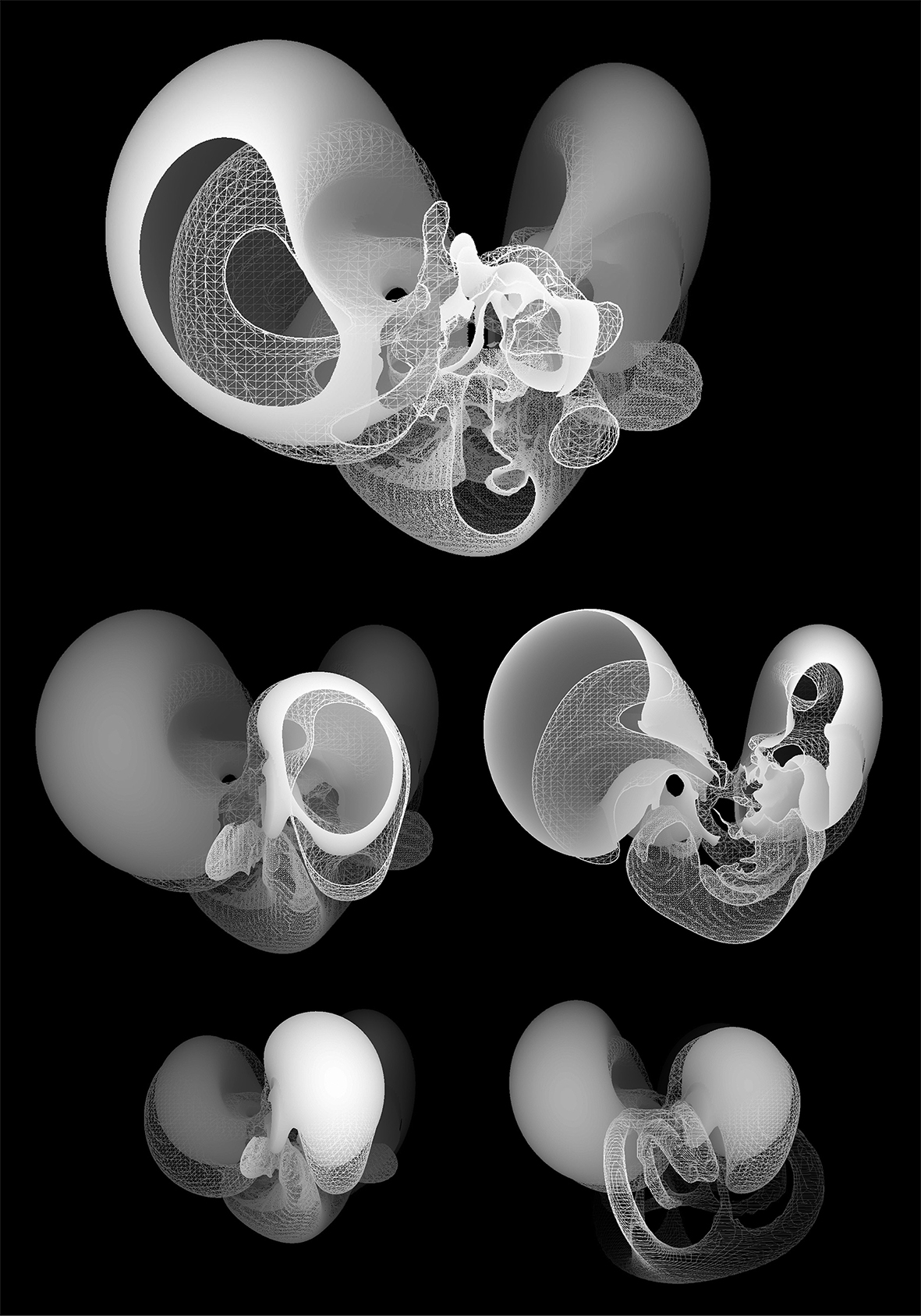
The Board:
